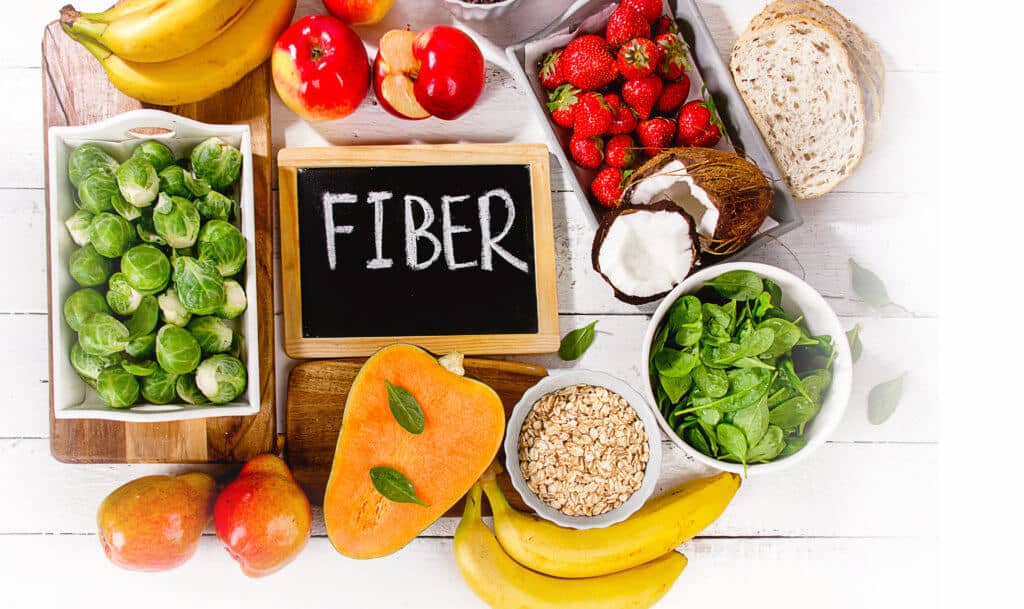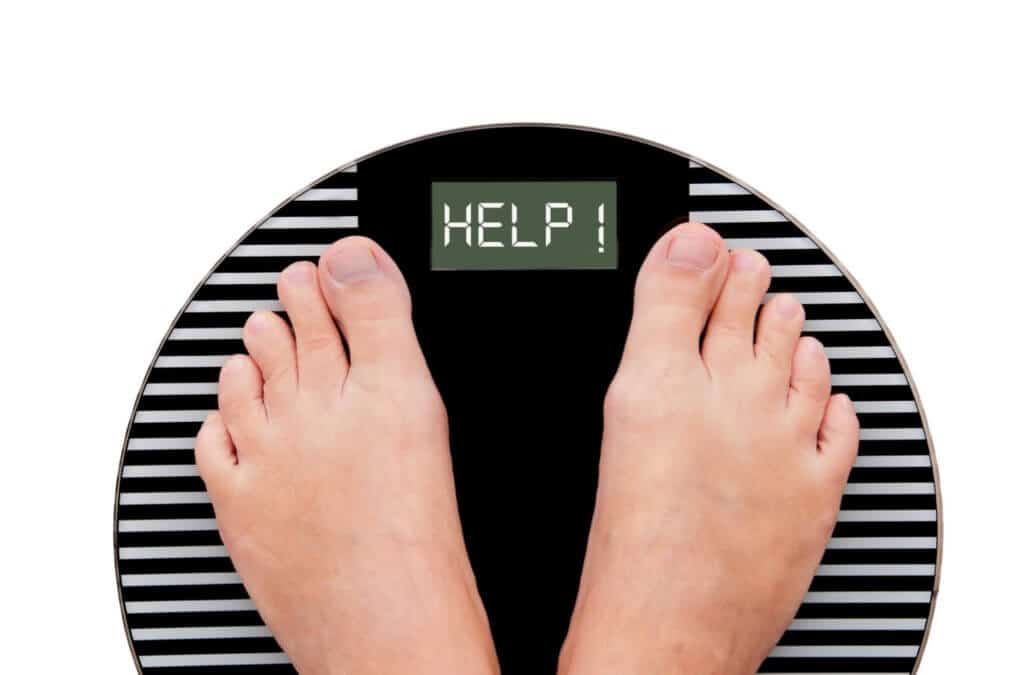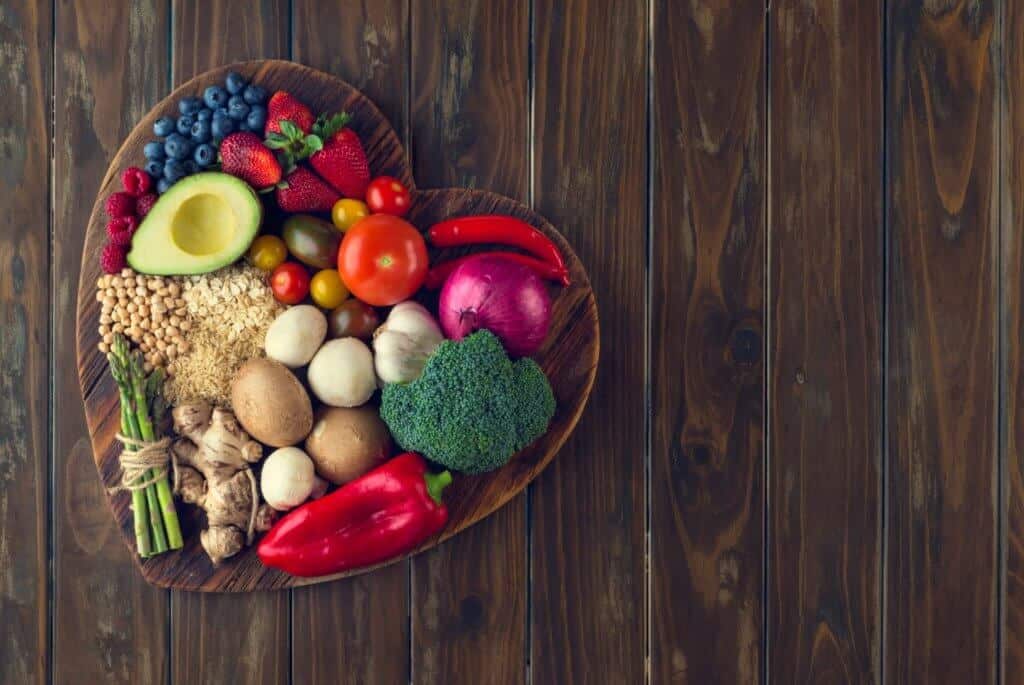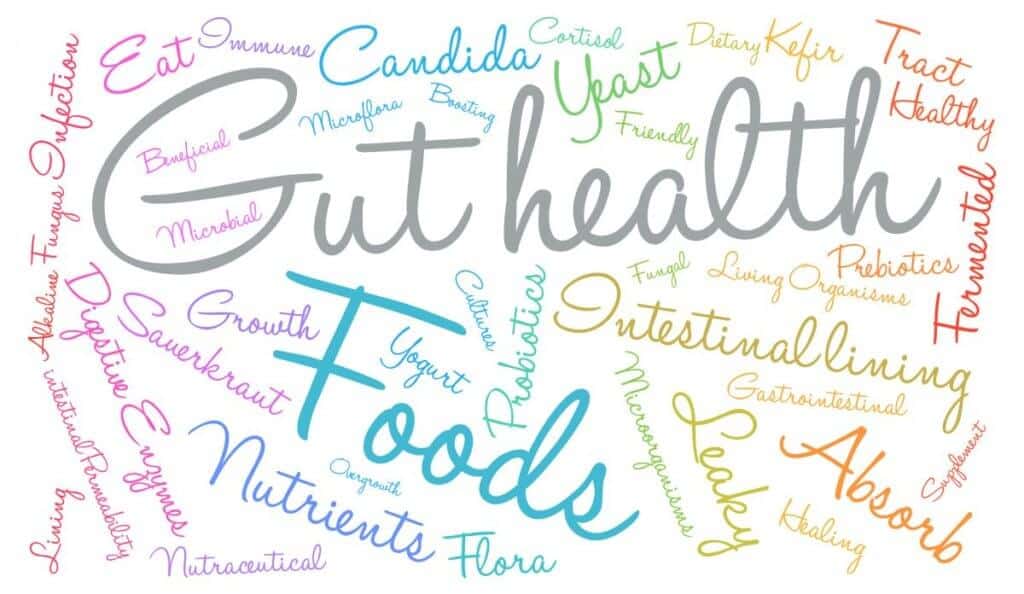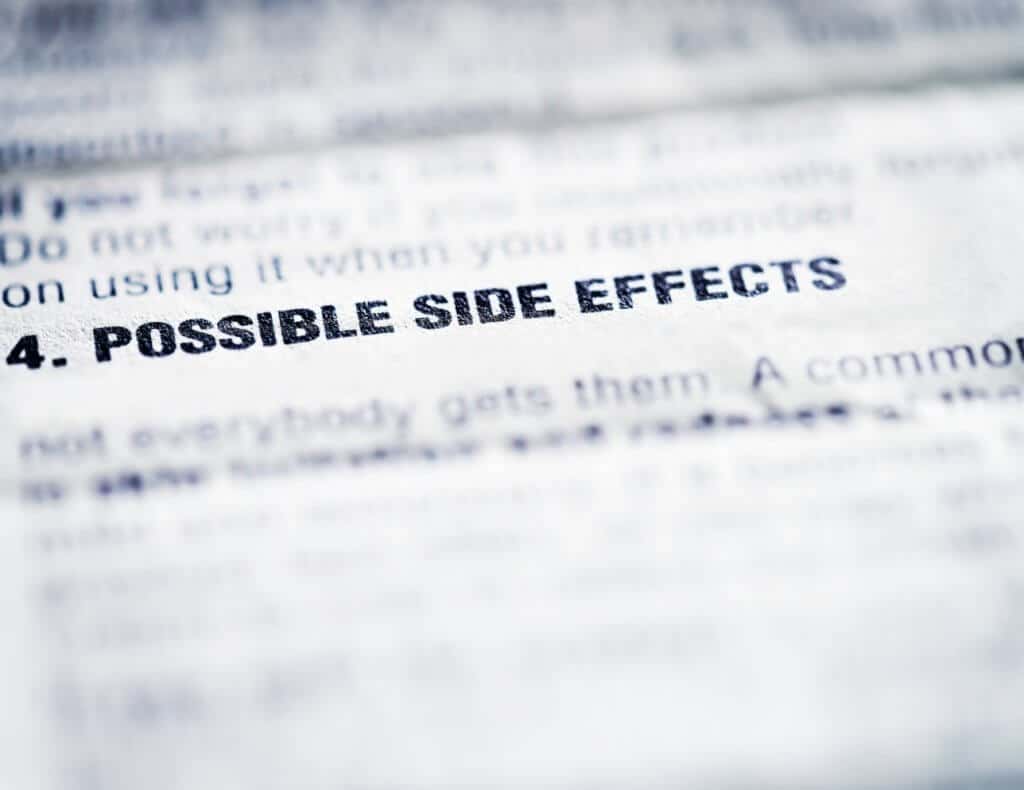I hadn’t heard of Glucomannan and weight loss until I was recently asked ‘what does glucomannan do?’
I suppose this puts me in a certain classification.
I study diet and nutrition yet my brain turns off when confronted by infomercials and the like, and I admit to having missed some trends over the years.
Glucomannan is a diet supplement that has done precisely what it was supposed to do for the people that stood to profit from it.
Harmless and reasonably useless, it made a splash in the early part of the 2000’s without landing its proponent in very much legal trouble, and it remains fairly well known today, partly thanks to a seemingly perpetual ad campaign that never uses the word ‘glucomannan.’
Presumably, any company that advertises it so persistently has made a very satisfying amount of money by now.
Naturally occurring, glucomannan can’t be patented, but that is not a concern to the bottom line.
Glucomannan | A Beginner’s Guide Video Review
What is Glucomannan?
Glucomannan is the ‘corm’ or root of an Asian plant called konjac and the only ingredient in Lipozene, a popular weight loss supplement.
Around 2008 Lipozene was the baby of the diet food market and public enemy of the FDA.
On the surface, glucomannan uses assist dieters in a time-honored manner.
We’re not saying that it works or doesn’t at this point, just discussing the mechanism to (literally) get things going.
What does glucomannan do? It is a fiber and it also swells when consumed, possibly causing a feeling of fullness.
This weight loss concept has been around since people sprinkled bran flakes on their breakfast cereal and then switched to Metamucil, a happy trade up to flavorless psyllium husk.
Today we prefer obtaining fiber from our foods. As a fiber supplement glucomannan is not particularly impressive.
Adding fiber to your diet is a proven way lose a little weight over time and in modern thinking, maintain gut health.
What is Konjac Root?
Konjac, or Amorphophallus konjac, has a few other names including konnyaku (yam cake) and Elephant Yam, although it is not related to true yams.
The Japanese have made a wide variety of foods from konjac corm for 1500 years, ranging from noodles, tofu and fruit jellies to a type of vegan sashimi.
Rather than being an exotic rarity in Asia, konjac is widely used as it has several unique and convenient properties, at least the kind of properties useful in food processing.
It is flavorless and colorless, allowing it to showcase any ingredient added to it, and it jells naturally, which pleases the texture-oriented Asian palate.
Konjac is also used in Chinese medicine as well as folk medicine (and food) in certain provinces, with records dating back 2000 years.
Folk applications seemed to center around bronchial treatments while traditional medicine uses konjac as a detoxifying agent, and to loosen phlegm.
There are a few other uses, none of which are related to weight loss.
Konjac, Glucomannan and the Western World
Sometimes marketed as an ‘ancient and rare Chinese supplement,’ glucomannan can be purchased as a tea, powder, tablet, capsule, and heaven knows what else.
We began to get the creeps about glucomannan when we understood what a marketer’s dream it is.
The only ‘rarity’ regarding glucomannan in Asia is the name, but it’s known to be safe and fiber is a proven way to lose a little weight, if only because it softens stools.
Much of what is said about glucomannan is not exactly a lie until you arrive at the hard medical research.
There’s a magic about the concept of ancient Asian medicine that just sells and sells.
Interestingly, the word glucomannan can’t be found in the Merriam-Webster dictionary or the Free Dictionary, although it’s in all the medical libraries.
After extensive research, we couldn’t trace the roots of the word at all, except to a vague and improvable reference to a Taiwanese tea marketed in the 1980’s.
No copyright necessary, and if anyone searches for glucomannan references in Chinese medicine, they will indeed rarely find it, as the made-up term doesn’t cross translate.
On the surface, glucomannan has almost everything going for it as a profitable weight loss supplement; that is, the sort of weight loss supplement that becomes the next big thing, and a quick google of ‘glucomannan’ brings up Dr. Oz, Dr. Axe, Dr. Hyman, and just about every diet review site ever published.
Companies Promoting Glucomannan
The Obesity Research Institute does. There are a few things that should be understood about this company.
The ORI first tried to market glucomannan under the brand names FiberThin and later as Propolene.
Lipozene, on the other hand, is different.
As per 2008, it was still on basic cable, still promoted with a mixed hard sell/soft sell tactic and still a lot more expensive than other glucomannan supplements despite its ‘buy 2 get 2 free’ type promises, which apply when one calls ‘right now,’ of course.
As per 2018 it still touts itself as ‘America’s number 1 diet supplement’ and offers a ’30 day money back guarantee’.
References to studies abound and are hard to untangle because ORI likes to refer to ‘studies of Lipozene‘ (which don’t exist) instead of studies of glucomannan or konjac root, which do, although they are scarce.
Oddly, the contents of Lipozene are listed as Amorphophallus konjac in a probable effort to confuse through sheer accuracy.
It has been said that Lipozene doesn’t contain enough glucomannan to cause weight loss and also that if it contained enough, people would ‘explode,’ both of which claims are spurious.
Lipozene’s marketing department, not their supplement, deserves flagellation and it is they that are largely responsible for the interest in glucomannan, when the gel caps could be filled with psyllium husk and be equally (in)effective and harmless.
Glucomannan Health Benefits
Glucomannan can have weight loss benefits which are not particularly impressive for any fiber, coupled with the attribute of swelling on consumption, which may make people feel ‘full,’ and curb appetite.
Despite its fame, whether or not it is deserved, glucomannan health benefits are unclear and it has not been studied as a weight loss supplement extensively.
The National Institute of Health currently has 13 published studies about glucomannan uses, which include studies of konjac.
Of these, none were published after 2015 and only 3 are about weight loss.
One study is Asian, but like much of the other research focuses on the use of glucomannan in animal feed.
No studies of Lipozene have been published as per 2018. The only question to ask is ‘what does Glucomannan do?’
According to Roger Clemens, an adjunct professor of pharmaceutical sciences and pharmacology, “[Studying] Glucomannan is generally passe in the medical and scientific communities.”
Glucomannan and Weight Loss
Focusing on the studies that examined Glucomannan and weight loss, one study in obese postmenopausal women showed positive results.
But, the study was of glucomannan mixed with aronia or chokecherry juice, which was being touted with mixed success as a new ‘super berry’.
Glucomannan was studied for pain reduction in children recovering from abdominal surgery with no statistically significant effects.
Another study of the effects of glucomannan on obese children declared itself ‘inconclusive.’
There is mention of an obscure 2005 Norwegian study, published in the Medical Science Monitor, which showed positive effects of glucomannan on weight loss when added to a 1200 calorie diet with exercise.
This study wasn’t archived by the NIH.
The scientific summaries agree that glucomannan hasn’t been sufficiently studied for weight loss and the few existent studies are flawed and not worth further pursuit.
Glucomannan works in the intestines by absorbing water. This, in turn, has a bulking effect. The fiber turns into a gel-like substance.
The gel swells, which encourages more frequent and fuller bowel movements.
Glucomannan also swells in the stomach when it reacts with liquids. This can cause a feeling of satiety.
Glucomannan turns into a bulking gel when it combines with liquids inside the body. This can have a beneficial effect regarding regularity and satiety.
Many people take a glucomannan for weight-loss purposes.
Some research has shown that it helps with weight-loss by suppressing or reducing appetite (delays emptying of the stomach) and assisting with more regular bowel movements.
This is especially true when it’s taken with plenty of water.
Several clinical trials showed that glucomannan could aid with weight-loss and the treatment of obesity when taken on a daily basis.
A 2015 study from the Journal of the American College of Nutrition also revealed that this fiber helps with weight reduction.
When taken daily along with plenty of water, glucomannan can help you shed some unwanted pounds.
This is essentially due to its ability to reduce appetite and encourage more regular bowel movements. However, results vary from person to person.
Additional Health Benefits of Glucomannan
One clinical study revealed that this natural fiber could reduce plasma total cholesterol levels in children when taken for at least eight weeks. Females showed an average decrease of 24%, while males showed an average decrease of 9 percent.
Glucomannan and Digestion
Studies have shown that glucomannan has a positive effect on the digestive tract. Since it is a natural dietary fiber, it helps promote more regular bowel movements.
Often glucomannan is used as a natural laxative.
Since it swells up in the intestines and absorbs water, it’s able to move waste through the colon more efficiently.
Staying regular is beneficial to your overall health and wellness.
One clinical study involving 93 patients with chronic constipation showed noticeable improvement after taking one gram of this fiber daily for one month.
Adding 1-3 grams of glucomannan to your daily diet can especially be helpful if you do not get much dietary fiber from foods like produce, beans, nuts and whole grains.
This natural fiber can benefit the digestive tract, especially if you do not receive enough fiber in your daily diet and suffer from conditions such as constipation.
Glucomannan Dosage
It is often encouraged for men to consume around 38 grams of dietary fiber each day. Women need at least 25 grams per day.
This fiber can come from foods such as whole grains, legumes, fruits, vegetables, nuts, seeds, beans, and oats.
As for glucomannan, it is recommended to consume at least 1-3 grams per day to see actual results.
You also need to consider what it is you’re trying to accomplish. For instance, are you taking it for weight-loss, or constipation?
For example, an eight-week study showed that one gram of this fiber taken with eight ounces of water, three times daily (one hour before meals) led to an average weight-loss of 5.5 pounds.
Another study revealed that up to five grams of glucomannan taken daily improved chronic constipation in children.
The amount you need daily depends on your health goals, as well as the amount of dietary fiber you receive from other foods. A heavier individual may require more glucomannan than a smaller person.
Glucomannan Side Effects
As is to be expected of a fiber supplement, glucomannan intake can cause:
- Indigestion
- Bloating
- Gas
When glucomannan first drew considerable attention, there were some reports of people’s intestines rupturing due to overuse.
There is no evidence to support this and we have to call it urban medical mythology, possibly spurred on by jokes that a person would have to take so much glucomannan to lose weight that they would ‘explode.’
As fiber has a stool softening the effect, the substantial build-up of any fiber in a gut is improbable.
One of the Japanese konjac uses, as mentioned above, is to make popular jelly candies? These common, fruit flavored treats are sold in pieces or cups and a some Americans managed to choke on them, unaware that they needed to chew them, not slurp them down whole.
Worse, they were given to very small children. 6 infants reportedly choked on konjac candy, leading to government warnings. This was not due to the ingredients in the candy (which was rumored at the time) but to the small size of the pieces.
This led the FDA and the corresponding Canadian department to issue warnings about the consumption of these treats, which are the only warnings about glucomannan thus far.
So take heed and if you are confronted with an Asian gummy dessert, and don’t approach it as you would a jello shot.
This advice can be applied to many unfamiliar snacks.
Konjac candy can be dangerous to very young children as they are small and closer in texture to gumdrops than jellos.
What Users Are Saying
“Great for appetite suppression. A tiny bit goes a long way – This product is the best thing I’ve found for appetite suppression. I try to intermittent fast most days, fasting for 16 hours. In the last hour or 2 I add less than 1/4 teaspoon to my coffee and it quiets my hunger. It is also beneficial in preventing Keto constipation. This package will last a very long time.”
“I almost went to the hospital after trying this. I then melted one capsule in a small glass jar with lid. It swelled up into a large mass the size of maybe a peanut, but it was not soft so it caused excessive pain in my back the one time I tried it. Also, read the other reviews similar to mine. I failed to check bad reviews before trying this product.”
The Bottom Line on Glucomannan
Glucomannan has a great deal of potential when it comes to overall health and wellness. [1]
Research shows glucomannan may help with weight loss.
However, glucomannan hasn’t proved effective for weight loss (any more than any fiber might be), isn’t harmful and doesn’t interest scientists very much.
P.T. Barnum, there is a potential new customer born every minute.
And glucomannan will be around as long as there are Udon noodles and other glucomannan foods.
There is no particular reason to take glucomannan supplements.
Glucomannan foods are available in markets and may slightly enhance a diet rich in fiber, which is highly recommended.
Those who wish to take a glucomannan for a specific health condition, it’s always best to speak with a licensed physician before taking. This way, you can gain a full understanding of any safety issues or concerns with drug interactions.
Article Sources
- https://www.tandfonline.com/doi/abs/10.1080/07315724.2014.870013
- https://www.ncbi.nlm.nih.gov/pubmed/15955465
- https://www.webmd.com/vitamins/ai/ingredientmono-205/glucomannan
- https://www.ncbi.nlm.nih.gov/pubmed/14993586
- https://academic.oup.com/ajcn/article/88/4/1167/4650004
- https://www.heart.org/en/healthy-living/healthy-eating/eat-smart/nutrition-basics/whole-grains-refined-grains-and-dietary-fiber#.WEVz6HeZNZI
- https://www.webmd.com/diet/features/fiber-heart#1
- https://www.ncbi.nlm.nih.gov/pubmed/9925120
- https://www.health.harvard.edu/blog/making-one-change-getting-fiber-can-help-weight-loss-201502177721
- https://en.wikipedia.org/wiki/Konjac
- https://www.ncbi.nlm.nih.gov/pubmed/7872224
- https://www.uofmhealth.org/health-library/hn-2852001
- https://www.ncbi.nlm.nih.gov/pubmed/20079822
- https://www.sciencedirect.com/science/article/pii/S0378874110000383?via%3Dihub
- https://www.ncbi.nlm.nih.gov/pmc/articles/PMC3892933/
- https://www.webmd.com/drugs/2/drug-56079/fiber-supplement-oral/details#side-effects
- https://www.ncbi.nlm.nih.gov/pubmed/15797686
- http://www.healthbeatblog.com/2008/01/learning-from-l/
- https://www.ncbi.nlm.nih.gov/pmc/articles/PMC3982747/
- https://www.ncbi.nlm.nih.gov/pmc/articles/PMC3356728/
- https://www.ncbi.nlm.nih.gov/pmc/articles/PMC3351083/
- https://www.ncbi.nlm.nih.gov/pmc/articles/PMC3225940/
- https://www.ncbi.nlm.nih.gov/pmc/articles/PMC3532867/
- http://articles.latimes.com/2008/jun/09/health/he-skeptic9
- https://www.ncbi.nlm.nih.gov/pmc/articles/PMC3399949/
- https://www.ncbi.nlm.nih.gov/pmc/articles/PMC1433766/
- https://www.ncbi.nlm.nih.gov/m/pubmed/25701331/
- http://articles.latimes.com/2008/jun/09/health/he-skeptic9
- https://www.ncbi.nlm.nih.gov/pubmed/15797686
- https://www.ncbi.nlm.nih.gov/pubmed/17618964
- https://ods.od.nih.gov/factsheets/WeightLoss-HealthProfessional/
- http://www.uofmhealth.org/health-library/hn-2852001
- https://www.ncbi.nlm.nih.gov/pmc/articles/PMC3892933/
- https://www.health.harvard.edu/blog/making-one-change-getting-fiber-can-help-weight-loss-201502177721
- https://www.ncbi.nlm.nih.gov/pubmed/7796558
- https://clinicaltrials.gov/ct2/show/NCT01709955
- https://www.ncbi.nlm.nih.gov/pubmed/8566676
- https://www.health.harvard.edu/blog/making-one-change-getting-fiber-can-help-weight-loss-201502177721
- https://academic.oup.com/jn/article/130/2/272S/4686350
- https://www.ncbi.nlm.nih.gov/pubmed/25701331
- https://www.efsa.europa.eu/en/efsajournal/pub/1798
- https://www.ncbi.nlm.nih.gov/pubmed/1313163
- https://www.ncbi.nlm.nih.gov/pubmed/24533610
- https://www.ncbi.nlm.nih.gov/pubmed/16320857
- https://www.ncbi.nlm.nih.gov/pmc/articles/PMC4401854/
- https://www.ncbi.nlm.nih.gov/pubmed/15955465
- https://www.sciencedirect.com/science/article/pii/S0939475305000384
- https://www.ncbi.nlm.nih.gov/pubmed/8566676
- https://www.drugs.com/npp/glucomannan.html
- https://www.webmd.com/diet/features/fiber-weight-control#1
- https://www.uofmhealth.org/health-library/hn-2852001
- https://www.ncbi.nlm.nih.gov/pubmed/8566676
- https://www.ncbi.nlm.nih.gov/pubmed/14993586
- https://www.webmd.com/diet/features/fiber-weight-control#1
- https://www.livestrong.com/article/296292-konjac-root-for-weight-loss/
- https://www.ncbi.nlm.nih.gov/pubmed/1742540
- https://my.clevelandclinic.org/health/drugs/9469-over-the-counter-and-herbal-remedies-for-weight-loss
- https://www.ncbi.nlm.nih.gov/pubmed/16320857
- https://my.clevelandclinic.org/health/drugs/9469-over-the-counter-and-herbal-remedies-for-weight-loss
- https://www.ncbi.nlm.nih.gov/pubmed/14993586
- https://healthfully.com/299464-glucomannan-to-lose-weight.html
- https://www.webmd.com/vitamins/ai/ingredientmono-205/glucomannan
- https://www.fda.gov/ICECI/EnforcementActions/EnforcementStory/EnforcementStoryArchive/ucm105953.htm
- https://www.ftc.gov/news-events/press-releases/2004/06/ads-various-diet-supplements-and-topical-gels-dont-cut-fat-says
- https://www.amazon.com/gp/customer-reviews/R3ROH8FGW9447R/
- https://www.amazon.com/gp/customer-reviews/R1CW5BUGN3TBTD/
- https://clinicaltrials.gov/ct2/show/NCT01709955
- https://www.drugs.com/npp/glucomannan.html
- https://clinicaltrials.gov/ct2/show/NCT01709955
- https://www.ncbi.nlm.nih.gov/pmc/articles/PMC3892933/
Partner with Us!
Looking to promote your weight-loss products or services?
Our platform reaches a dedicated audience actively seeking the best solutions. Contact us to explore advertising opportunities and grow your brand with us.
Get in Touch